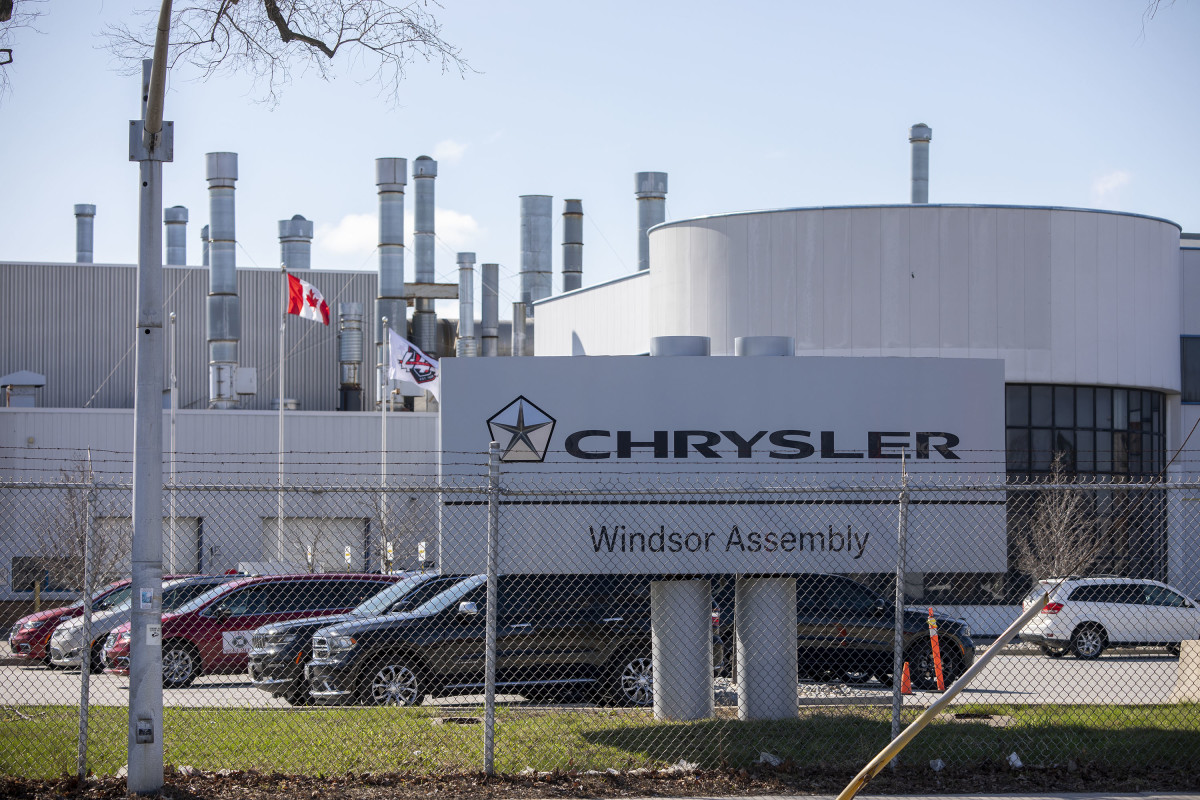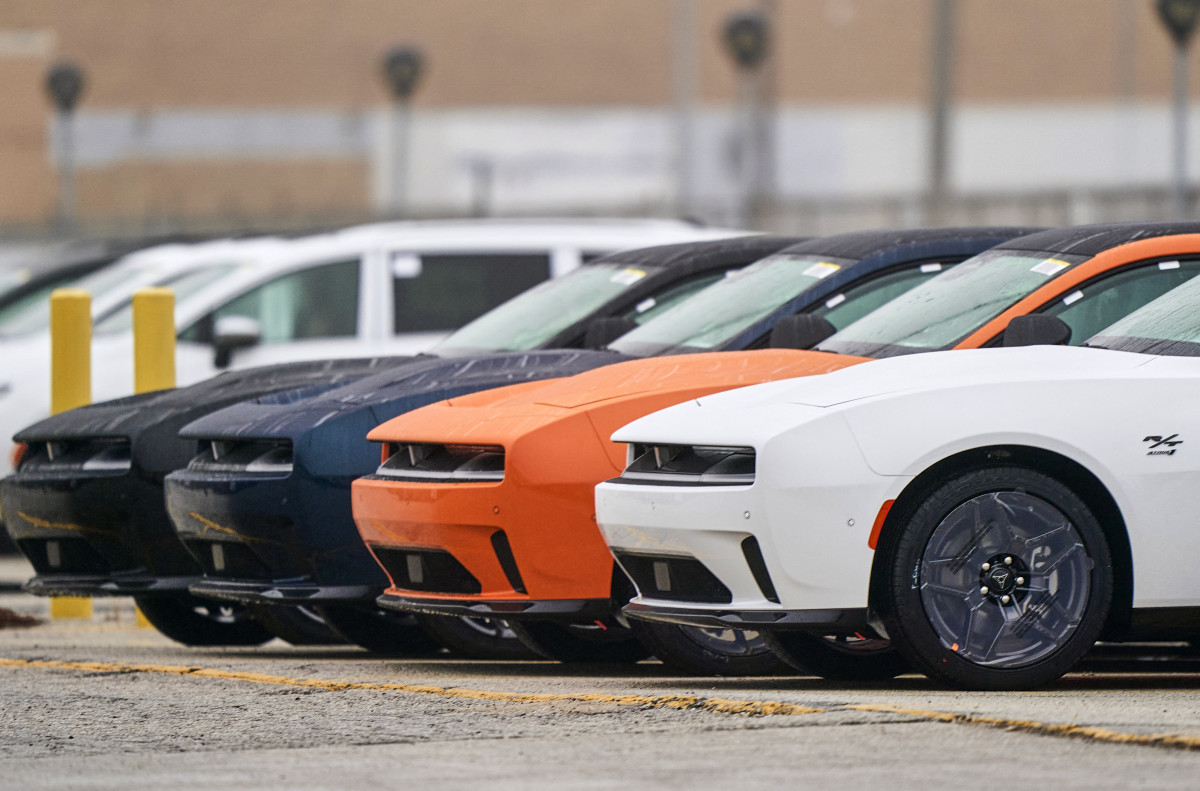The Jeep, Dodge and Ram parent company reacts to the President’s stiff, new tariffs.
Multinational automaker Stellantis is making drastic moves that will affect its North American workforce as the Trump Administration’s landmark trade levies become a new reality for the American car industry.
According to a new report by Automotive News, the parent company of storied American car brands like Chrysler, Dodge, Jeep, and Ram is imposing temporary layoffs affecting nearly 1,000 U.S.-based workers at five plants in Michigan and Indiana. This setback comes at the same time it pauses production at some of its plants in Canada and Mexico in response to the 25% tariffs tacked onto imported cars and car parts by President Donald Trump.
Getty Images
A Stellantis spokesperson told the publication that the layoffs would impact workers at five Midwest plants, specifically the stamping plants in Sterling Heights and Warren, Michigan, as well as three plants in Kokomo, Indiana, that make transmissions and metal castings.
According to Stellantis, the affected stamping plants make hoods, roofs, liftgates, side apertures, fenders, and floor pans for a wide variety of vehicles, including the Dodge Durango, Chrysler Pacifica, Jeep Gladiator, Grand Cherokee, Wagoneer, Grand Wagoneer, Wrangler, and light—and heavy-duty Ram trucks.
The automaker emailed employees about the production cuts on April 3. In the message, Stellantis North America COO Antonio Filosa said that the setbacks are due to production halts at its plant in Windsor, Ontario, Canada, and its assembly plant in Toluca, Mexico.
Stellantis’s Windsor Assembly Plant near Toronto, which makes the Chrysler Pacifica and Voyager minivans and the Dodge Charger Daytona EV, will halt production for two weeks starting on April 7. Meanwhile, the Toluca Assembly Plant will halt production from April 7 through the end of the month, which will affect the Jeep Compass and the electric Wagoneer S.
Getty Images
In his email to employees, Filosa says that Stellantis is actively accessing how to navigate the new tariff-heavy environment while staying competitive among its rival, adding that the company needs “collective resilience and discipline to push through this challenging time.” Trump’s 25% tariffs currently apply to vehicles imported into the United States, however, tariffs on major components like engines and transmissions have a May 3 deadline.
“We are continuing to assess the medium- and long-term effects of these tariffs on our operations, but also have decided to take some immediate actions, including temporarily pausing production at some of our Canadian and Mexican assembly plants,” Filosa wrote. “Those actions will impact some employees at several of our U.S. powertrain and stamping facilities that support those operations. These are actions that we do not take lightly, but they are necessary given the current market dynamics.”
CTV News reports that the leader of the Unifor Local 444, which represents the Windsor Union, warned that Trump’s trade decisions have ripple effects beyond the northern and southern U.S. borders. “This has and continues to create uncertainty across the entire auto industry. This is not just affecting our plant — it’s impacting facilities in the U.S. and Mexico as well,” he said in a social media post.
The fine text of the tariff proclamation Trump signed on March 26 states that parts that comply with tariff-free trade rules written into the United States-Mexico-Canada Agreement will not be subject to the new tariffs until the Commerce Department and U.S. Customs and Border Patrol find a way to tax their non-U.S. content.
Related: Stellantis Offering Employees Up to $72,000 to Quit
Stellantis’ latest moves indicate that the automaker is in a precarious position due to the fact that it makes major car parts all over North America. Trade agreements, specifically the USMCA, allowed the automaker to make important parts from body panels to the twin-turbo Hurricane inline-six and 6.4-liter Hemi V8 engines in different parts of the continent to be installed in completed cars that would be imported and sold in the U.S. Despite this, Filosa reiterates that the company is doing all that it can to navigate its path.
“Be assured that we are very engaged with all of our key stakeholders, including top government leaders, unions, suppliers and dealers in the U.S., Canada and Mexico, as we work to manage and adapt to these changes,” he wrote. “We are focused on taking responsible actions that are in the best interests of our customers, our business partners and you, our employees — wherever you work. Together, I know we will rise to these new challenges, just as we have always done in the past and we will emerge even stronger.”